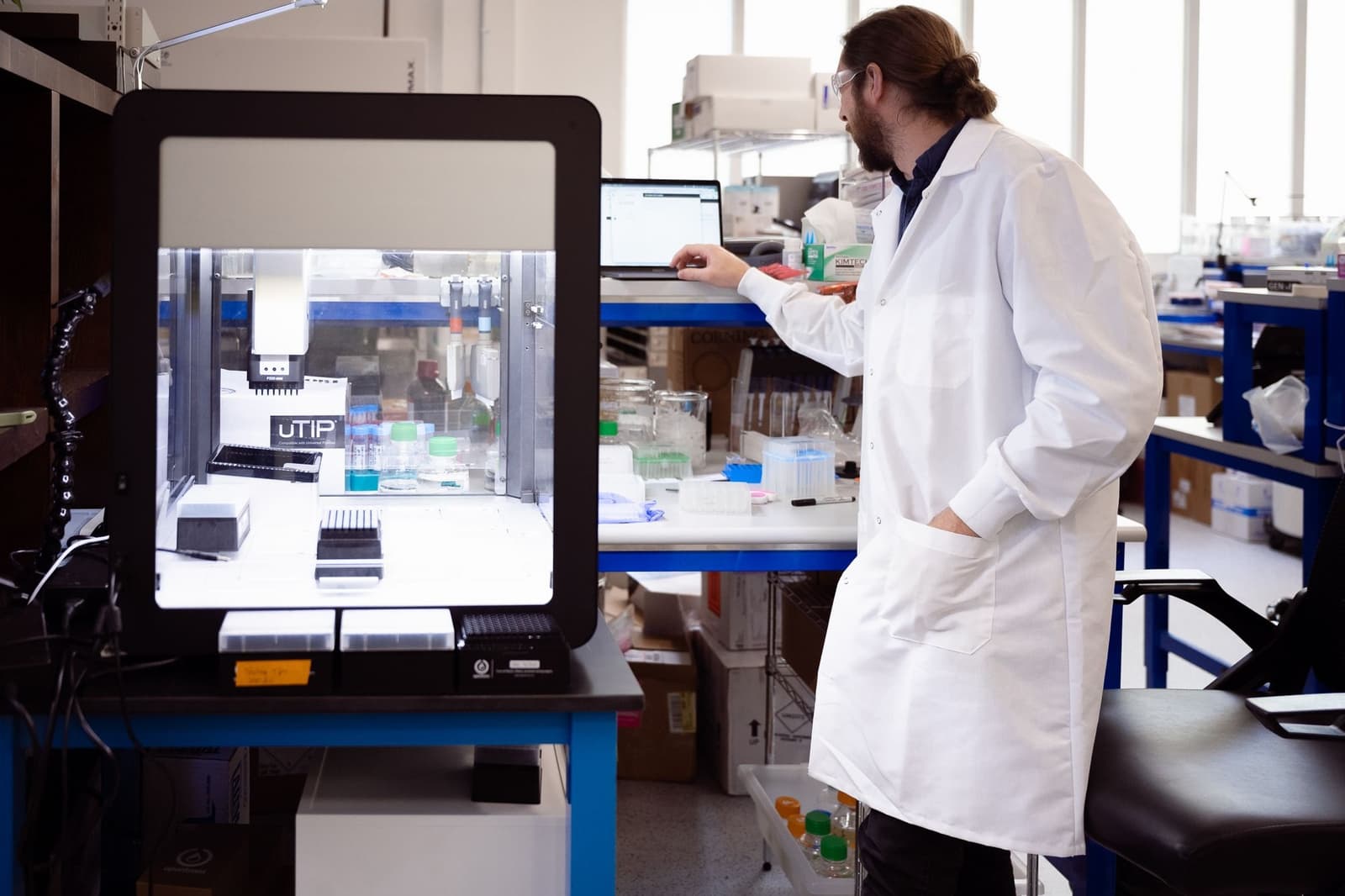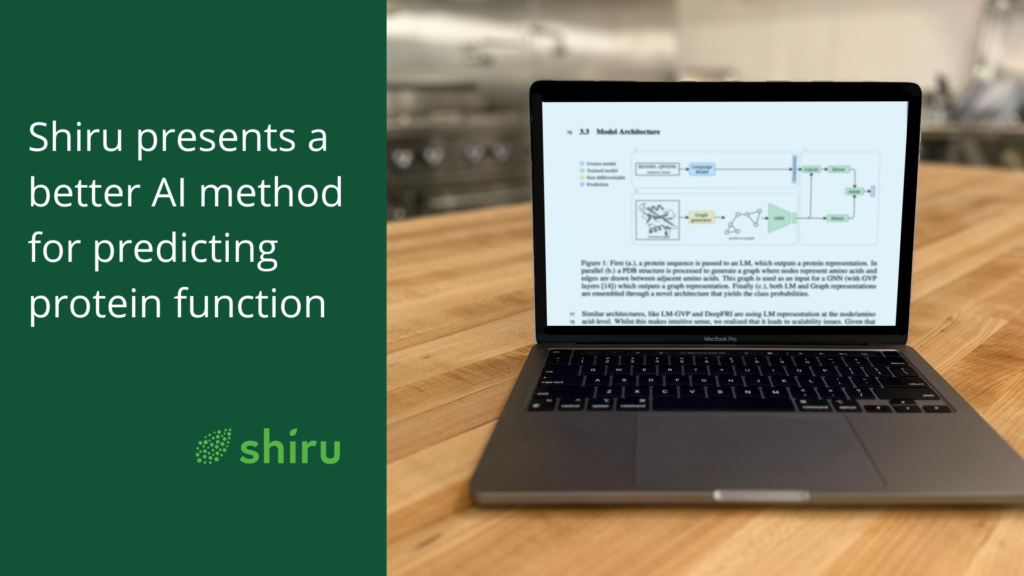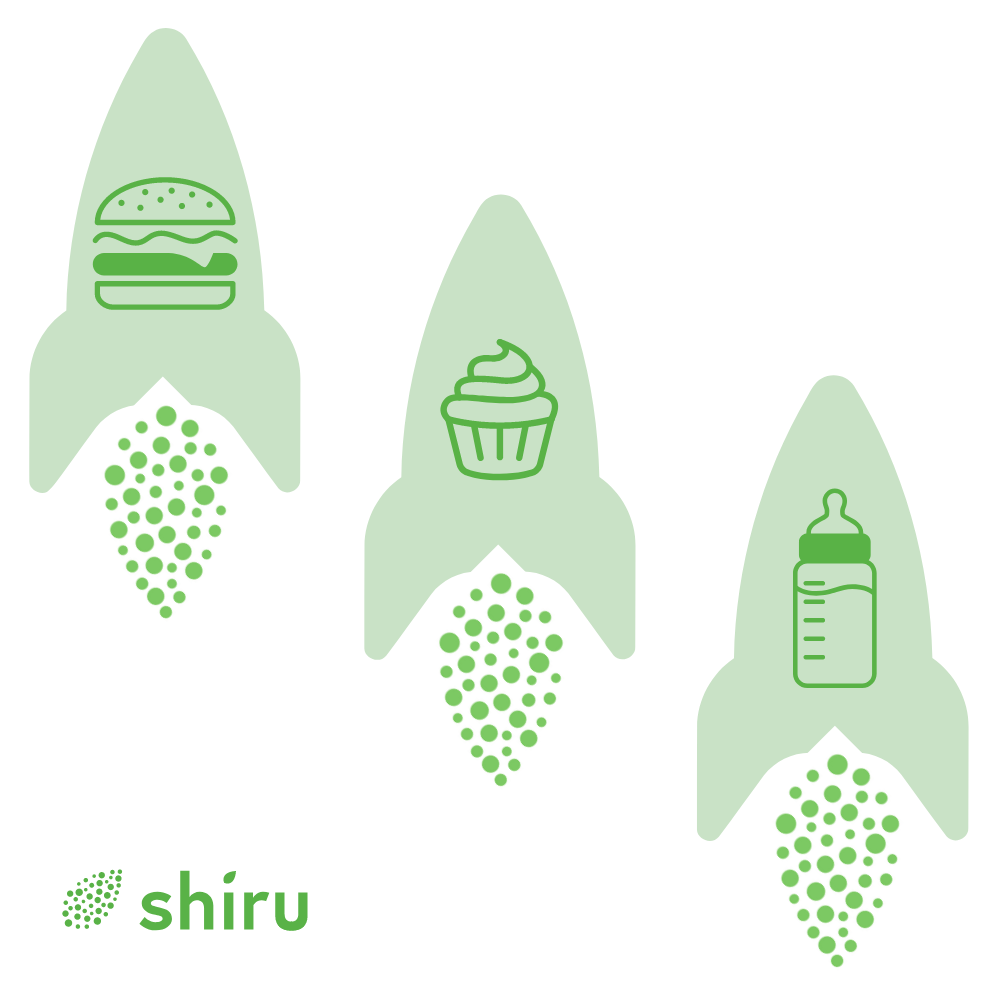Humans have evolved to crave animal proteins, but the environmental consequences of raising animals at industrial scale are difficult to ignore.
What if we could find proteins with qualities exceeding animal-derived products, while employing more environmentally sustainable means of production? The number of unique protein sequences in existing public databases is estimated at roughly 500 million – a massive reservoir of potential ingredients to enhance food products. To find the “needle(s) in the haystack” among this enormous natural diversity, Shiru has developed a high-throughput protein production and characterization platform to quickly evaluate proteins for use in food applications. This data will enable machine learning of protein properties based on sequence, unlocking nature’s diversity to food scientists and eaters alike.
At Shiru, high-throughput screening (HTS) describes a combination of chemical assays, robotic equipment, and software solutions that enable the testing of thousands of samples in the time frame of days or weeks. The biotechnology industry has employed HTS methods to sift through vast inventories of proteins and chemicals to find those candidates with specific function in biotechnological applications for years. While modern molecular biology and fermentation allow us to generate any DNA sequence (and thus protein sequence) we can think of, current industry-standard methods for measuring food functionality of proteins are time and sample consuming. Our task at Shiru is to adapt traditional assays for measuring food properties to work with significantly less protein and at a significantly faster pace.
The ubiquitous phrase in biotechnology, “you get what you screen for” highlights the need to incorporate functional context in screening assays and workflows. Shiru’s interdisciplinary technical team of food scientists, strain engineers, and assay developers will ensure the translation of protein biochemical properties to delicious and desirable food ingredients. The intersection of these disciplines with advanced machine learning to refine and discover new proteins put Shiru at the forefront of the alternative protein movement – yielding the next generation of functional and sustainable food ingredients.




